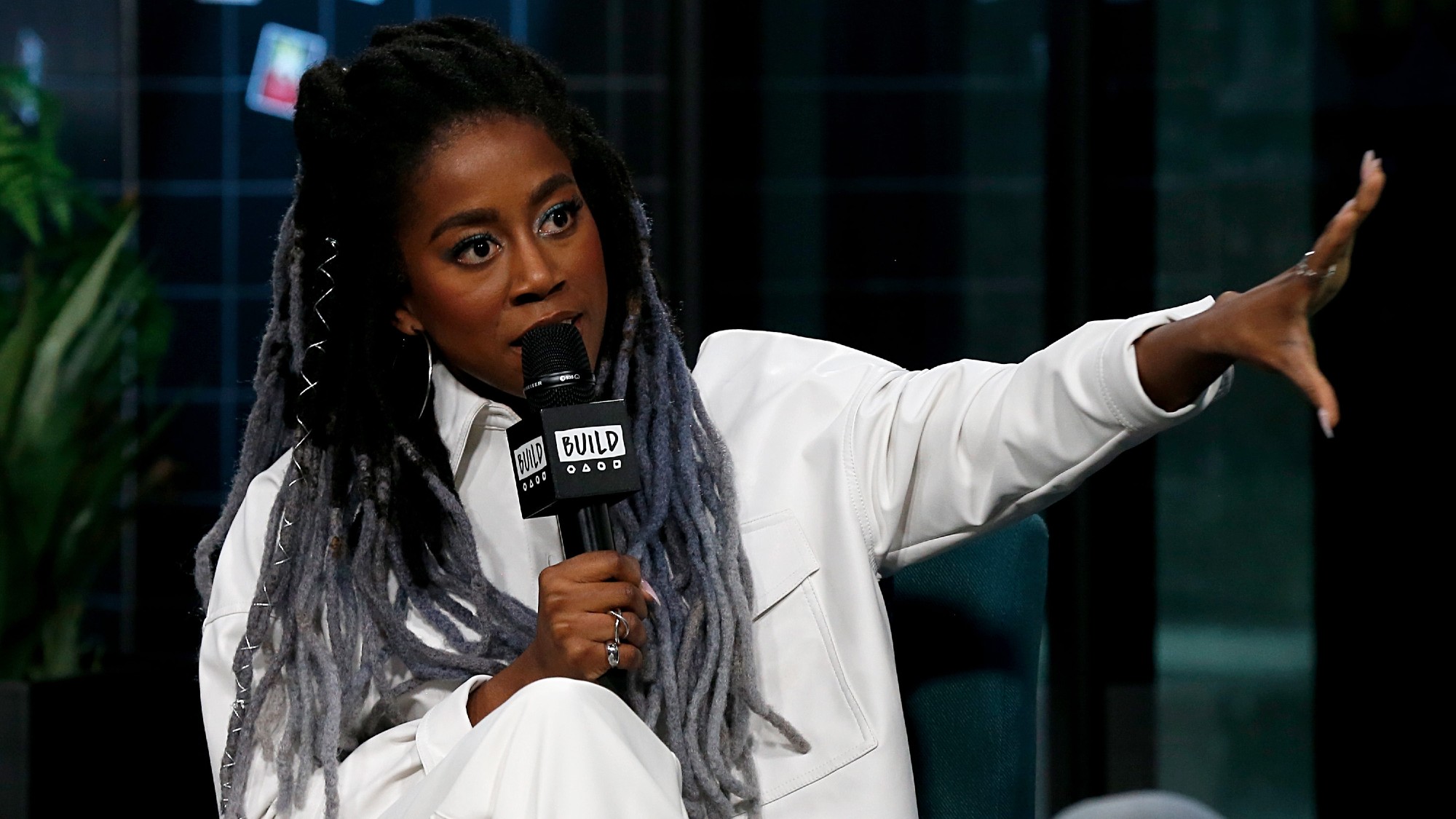How Black female science fiction and fantasy writers are upending the narrative
There may be only a few making waves. But their effect has been seismic.


A free daily email with the biggest news stories of the day – and the best features from TheWeek.com
You are now subscribed
Your newsletter sign-up was successful
Science fiction has always been a way to envision the future. Sometimes for the optimal; sometimes as the future might be if humans do not zig toward the good and just. As the legendary science fiction author Isaac Asimov once wrote, "the saddest aspect of life right now is that science fiction gathers knowledge faster than society gathers wisdom."
Black women have always gathered knowledge faster than society writ large gathers wisdom. Thus, a Black woman science fiction — or fantasy — writer might be the most prescient writers of these genres. The field has long been run by mostly white men: the J.R.R. Tolkiens, Philip K. Dicks and George R. R. Martins of the field. But the popularity and foresight of a handful of Black female writers proves that the reading public is ready to imagine a better tomorrow, today.
Tomi Adeyemi: the fresh storyteller
The final installment of Adeyemi's "Legacy of Orisha" trilogy, "Children of Anguish and Anarchy," was released on June 25, 2024 and leapt to the top of the New York Times Children's and Young Adult bestsellers list. The previous two titles in the series did the same when released. "There is something about reading when you're young that is so different from reading when you're an adult," Adeyemi said when interviewed in SBJCT. "Books have the opportunity to bury themselves in your heart and shape the way you think about the world."
The Week
Escape your echo chamber. Get the facts behind the news, plus analysis from multiple perspectives.

Sign up for The Week's Free Newsletters
From our morning news briefing to a weekly Good News Newsletter, get the best of The Week delivered directly to your inbox.
From our morning news briefing to a weekly Good News Newsletter, get the best of The Week delivered directly to your inbox.
Adeyemi, a Nigerian American writer, merges West African mythology with a textual undercurrent about the effects of the very real transatlantic slave trade. The series follows Zélie Adebola, a girl who comes from a line of magicians. In the final book, a group of colonizers called Skulls enslave Zelie and her compatriots. These are young adult books only in their marketing strategy. "It goes even deeper than entertainment, because I wanted to help people see Black people, recognize them and empathize with them and identify their pain and feel the need to put a stop to it and fight against it," Adeyemi said to Assembly, a website from Malala Yousafzai's Malala Fund.
Perhaps predictably, Adeyemi has experienced a Hollywood roller coaster since the first book's debut. Studios have picked up the rights to turn the first title into a movie, only to let the rights run out. Then, in 2022, Paramount snagged the rights to "Children of Blood and Bone," the first in the series, and agreed to sign Adeyemi on as screenwriter, with renowned director Gina Prince-Bythewood at the helm.
Octavia Butler: the revered clairvoyant
Octavia Butler, who died in 2006, once said of "The Parable of the Sower," her celebrated 1993 novel about a woman who feels others' pain, "I began writing the book with the thought that maybe what we needed was the biological conscience. It does seem to me that there are too many people in this world who would just as soon wipe out half their country if they could rule the other half." Long has it been argued that the United States is a country low on empathy. Butler named that American disease in this novel and across her oeuvre.
As the years have ticked on, Butler's speculative visions of the future have come to uncanny fruition. "The smoke-choked air from fire gone wild, the cresting rivers and rising seas, the sweltering heat and receding lakes, the melting away of civil society and political stability, the light-year leaps in artificial intelligence — Octavia Butler foresaw them all," wrote Tiya Miles, a professor and historian at Harvard University, in The Atlantic.
A free daily email with the biggest news stories of the day – and the best features from TheWeek.com
"Kindred," Butler's 1979 first-person novel about a Black woman who keeps being pulled from the 20th century to the antebellum era, was made into a series on FX in 2022. And there have been near-adaptations of "The Parable of the Sower" for years. With or without Hollywood, Butler's clairvoyance remains unbending. As the writer Tananarive Due said about Butler and her work, "sister, we got cities burning … they were telling her. And how dare she, you know, sort of retreat into this world. But actually, she was showing us an even bigger world, you know, something that we couldn't even wrap our minds around."
N.K. Jemisin: the blockbuster world shaper
Awards are far from the end-all of an author's value. Still, when a Black woman wins three consecutive Hugo Awards for best novel, the first time any author has ever done so, it is telling.
Jemisin's acclaimed Broken Earth trilogy had science fiction and fantasy critics agog. But readers of all stripes were drawn to the series' intermingling of climate catastrophe, magic, stalwart women and unabashed sexuality.
In Jemisin's work there is a cracking open. When she contemplates alternate worlds, she builds them brick by brick. In her world-building, she envisions universes in which equality and justice are goals that are sometimes achievable. And to do so requires an empathetic embrace of both the individual and the collective.
"A good portion of the reason that we are dealing with this political bullshit, pardon my language, in the United States right now is because we've got a bunch of white people who are freaked out because demographics seem to be overwhelming them and because there was a Black president and they're suffering from the existential terror of extinction — even though there absolutely is no real logic to that terror," said Jemisin to The Paris Review. "That is what we've been struggling with, people who are so fragile that they're literally willing to destroy the planet rather than give up controlling it. They're literally not willing to do things that are good for everyone because they're terrified of one person who they don't like maybe getting some benefit from that."
Her message is resonating: Sony is set to produce all three of the Broken Earth's novels as movies. "The world is pretty unjust right now," said Jemisin to the outlet. "Those of us that have grown up on the short end of the justice stick understand this innately and want acknowledgement of that reality, because so much of American society is dedicated to weaving the illusion that what you see is not actually what is happening.… But fixing that is part of the job that science fiction and fantasy can do."
Scott Hocker is an award-winning freelance writer and editor at The Week Digital. He has written food, travel, culture and lifestyle stories for local, national and international publications for more than 20 years. Scott also has more than 15 years of experience creating, implementing and managing content initiatives while working across departments to grow companies. His most recent editorial post was as editor-in-chief of Liquor.com. Previously, he was the editor-in-chief of Tasting Table and a senior editor at San Francisco magazine.
-
 Quiz of The Week: 14 – 20 February
Quiz of The Week: 14 – 20 FebruaryQuiz Have you been paying attention to The Week’s news?
-
 The Week Unwrapped: Do the Freemasons have too much sway in the police force?
The Week Unwrapped: Do the Freemasons have too much sway in the police force?Podcast Plus, what does the growing popularity of prediction markets mean for the future? And why are UK film and TV workers struggling?
-
 Properties of the week: pretty thatched cottages
Properties of the week: pretty thatched cottagesThe Week Recommends Featuring homes in West Sussex, Dorset and Suffolk
-
 Travel for all: 6 of the world’s most accessible destinations
Travel for all: 6 of the world’s most accessible destinationsThe Week Recommends Experience all of Berlin, Singapore and Sydney
-
 Book reviews: ‘Bonfire of the Murdochs’ and ‘The Typewriter and the Guillotine’
Book reviews: ‘Bonfire of the Murdochs’ and ‘The Typewriter and the Guillotine’Feature New insights into the Murdoch family’s turmoil and a renowned journalist’s time in pre-World War II Paris
-
 The 8 best TV shows of the 1960s
The 8 best TV shows of the 1960sThe Week Recommends The standout shows of this decade take viewers from outer space to the Wild West
-
 Microdramas are booming
Microdramas are boomingUnder the radar Scroll to watch a whole movie
-
 The year’s ‘it’ vegetable is a versatile, economical wonder
The year’s ‘it’ vegetable is a versatile, economical wonderthe week recommends How to think about thinking about cabbage
-
 The biggest box office flops of the 21st century
The biggest box office flops of the 21st centuryin depth Unnecessary remakes and turgid, expensive CGI-fests highlight this list of these most notorious box-office losers
-
 Mail incoming: 9 well-made products to jazz up your letters and cards
Mail incoming: 9 well-made products to jazz up your letters and cardsThe Week Recommends Get the write stuff
-
 The 8 best superhero movies of all time
The 8 best superhero movies of all timethe week recommends A genre that now dominates studio filmmaking once struggled to get anyone to take it seriously
